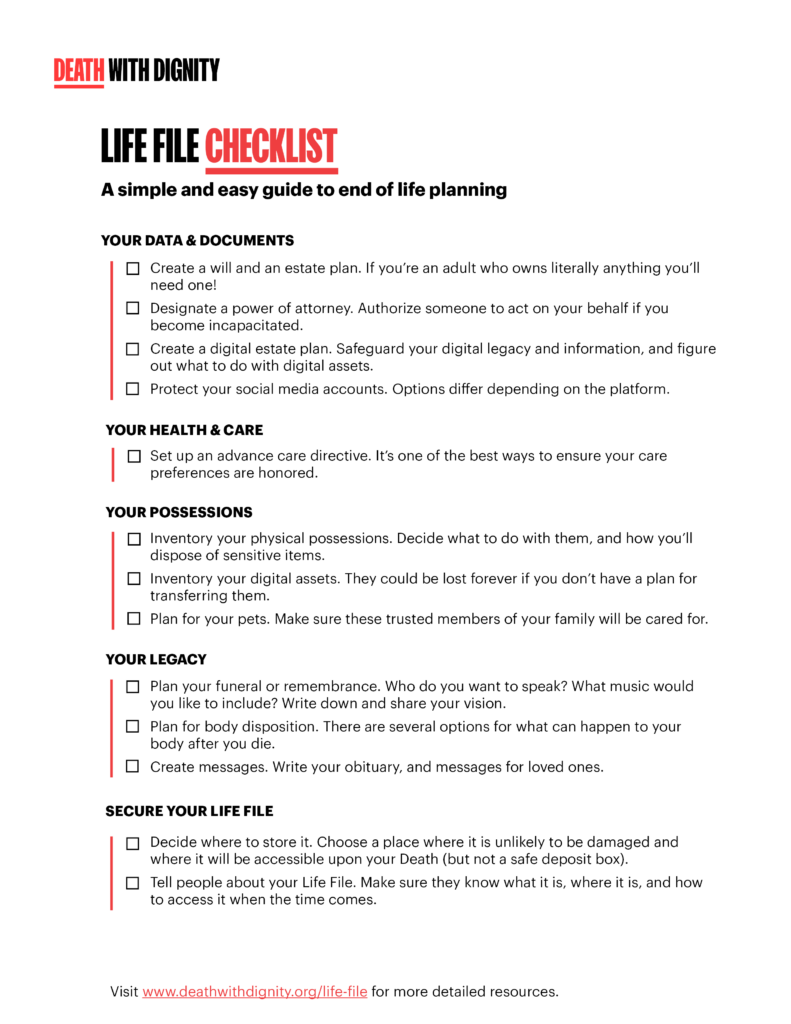The Bahá’í teachings present a compelling framework for contemplating life after death. Central to this belief system is the understanding that each individual’s existence extends beyond the physical realm. As such, creating an effective checklist or “To-Do List” can serve as an invaluable tool for Bahá’ís in their journey of spiritual and moral preparation. This article endeavors to outline the necessary components of a comprehensive life checklist informed by Bahá’í principles, which should guide adherents in their preparation for the afterlife journey.
Embracing Spiritual Development
At the heart of Bahá’í teachings is the notion of constant spiritual growth. This necessitates the inclusion of a continuous self-reflective practice within one’s checklist. Daily meditation or prayer can enhance one’s connection with the Divine, cultivating personal virtues essential for spiritual ascension. Emphasis should be placed on attributes such as love, compassion, honesty, and humility. The development of these qualities not only enriches one’s character but also ensures that one leaves a lasting positive impact on the world.
Incorporating a framework for setting spiritual goals can further solidify this aspect of the checklist. For example, individuals might designate a specific period each week for studying Bahá’í texts or engaging in community service. Establishing benchmarks to gauge spiritual progress can invigorate one’s aspirations toward spiritual enlightenment.
Nurturing Human Relationships
Bahá’í teachings underscore the importance of fostering harmonious relationships. Relationships serve as mirrors that reflect one’s spiritual state and are pivotal in shaping one’s character. Thus, an essential aspect of any life checklist should comprise intentional efforts to cultivate meaningful connections. This could manifest in various forms, such as resolving disputes, extending apologies, or expressing gratitude to friends and family.
One might create a “relationship inventory,” identifying key individuals who have impacted one’s life, acknowledging their significance, and contemplating ways to strengthen those bonds. The Bahá’í principle of unity should guide these interactions, fostering an environment where love and fellowship thrive, echoing the teachings of Bahá’u’lláh that advocate for the oneness of humanity.
Practicing Service to Humanity
The Bahá’í faith emphasizes a pragmatic approach to spiritual life, advocating for service as an avenue to demonstrate devotion to God. Therefore, integrating acts of service into one’s checklist is not just beneficial, but imperative. This can range from volunteer work within local communities to global initiatives aimed at alleviating suffering. The conscious choice to engage in service-oriented projects cultivates a profound sense of purpose. It connects individuals to a larger tapestry of humanity, reinforcing the Bahá’í belief that one’s actions should contribute to the betterment of society.
Moreover, setting specific targets for acts of service can enhance one’s commitment. Whether committing to monthly volunteer days or initiating a community project, the idea is to find a nexus between personal fulfillment and collective upliftment.
Reflecting on Material Pursuits
The transient nature of material possessions is a recurring theme within Bahá’í writings. Consequently, evaluating one’s attachment to the material world warrants its own dedicated section on the checklist. Individuals should reflect upon their consumption habits, financial priorities, and lifestyle choices, considering how these align with their spiritual objectives.
This reflection can lead to meaningful decisions concerning the redistribution of wealth. Many might choose to put aside a portion of their income for charitable contributions, or consciously adopt simpler living practices that prioritize spiritual over corporeal needs. Through such actions, adherents can embody the Bahá’í principle of moderation, assuaging the excessive focus on materialism.
Cultivating Educational Pursuits
Education holds a place of paramount importance in the Bahá’í faith, viewed as an instrument for unlocking potential and developing intellect. A critical checklist item should involve a commitment to lifelong learning, encompassing not just formal education but also self-directed study. The enlightening effect of acquiring knowledge across various disciplines—spiritual, scientific, and artistic—aligns with the belief that education enables individuals to better serve humanity.
Setting educational goals—such as attending workshops, enrolling in courses, or engaging in group discussions—can enhance personal development. Creating a reading list of seminal Bahá’í texts would also serve as a vital resource for both spiritual nourishment and intellectual growth.
Preparation for the Afterlife
Ultimately, the culmination of a Bahá’í’s life checklist is an earnest preparation for the afterlife. Bahá’í teachings advocate reflecting on the impact of one’s life and actions, considering what legacy is to be left behind. This aspect intertwines with both the moral development and community involvement previously discussed.
Individuals may contemplate their personal narrative, assessing whether they have lived in a manner that reflects Bahá’í tenets. What stories would be told about their lives? What contributions would echo in the hearts of others? Engaging in such contemplative practices not only assists in aligning actions with beliefs but also fortifies one’s spiritual readiness for the next stage of existence.
Conclusion
The framework for a checklist in light of Bahá’í teachings thus encompasses numerous dimensions: nurturing spiritual growth, cultivating relationships, engaging in service, reflecting on materiality, pursuing education, and preparing for the afterlife. Each component contributes not merely to an individual’s preparedness for life after death but also enhances the quality of life in the present. This comprehensive approach not only aligns with Bahá’í values but also inspires a life epitomized by love, service, and purpose.
